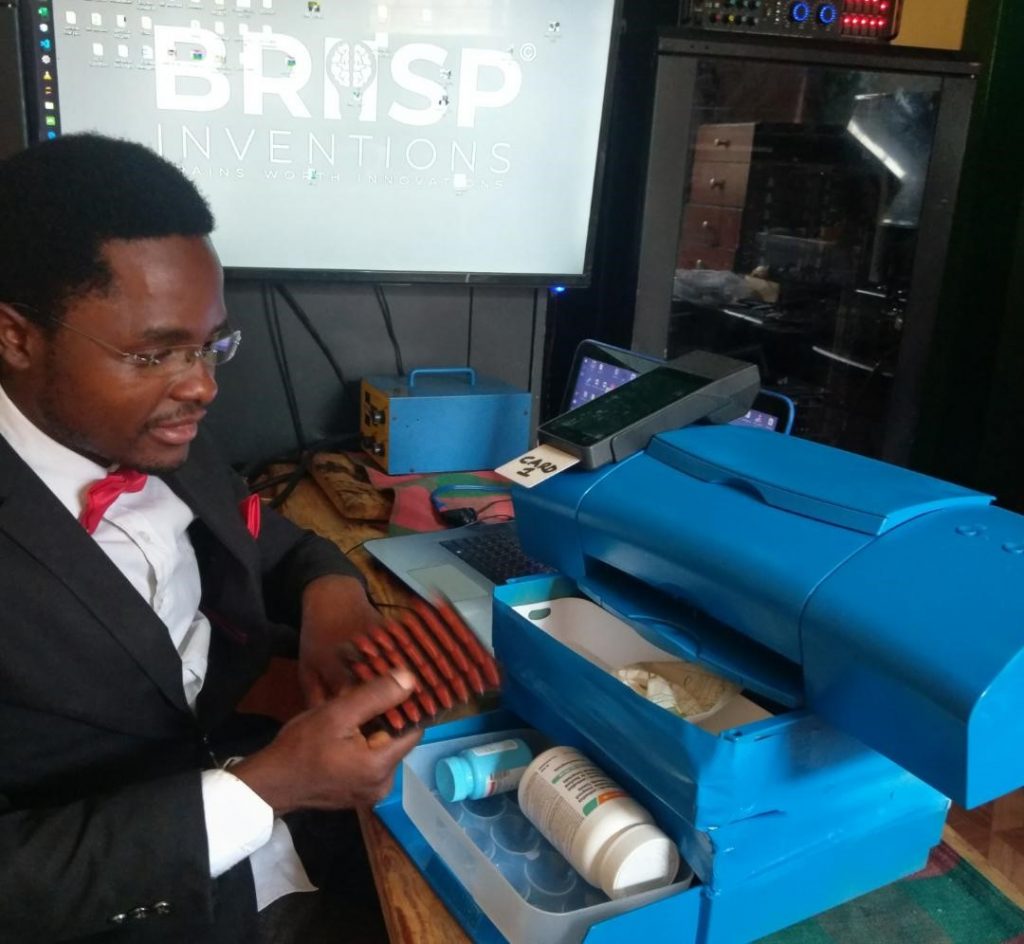
One of the challenges people face in developing countries is access to health facilities owing to long distances. Overcrowding by patients seeking medical assistance in the available health facilities is quite prevalent, while in some far-flung rural areas, people barely have access to health personnel.
This is what inspired Billy Munyenyembe, a final year student at Information and Communication University (ICU) of Zambia to invent a medicine dispenser. Billy presented this innovation at the 8th Annual COMESA Research Forum 13 – 16 September 2021 for consideration in the COMESA Innovation Awards.
The technology, which he has named BRIISP Medicine Dispenser (BMD), is intended for remote dispensation of medicine by medical personnel as per prescription.
“If the patient has a prescription already, he or she can use a card or a given code for medicine dispensation,” said Billy a bachelor’s degree student in Software Engineering. “With the ever-increasing queues at hospitals and ever-increasing number of patients, doctors barely attend to every patient that comes for medical assistance.”
The BMD is designed to help people have access to medical assistance at any particular time without going to any health facility unless the situation is critical and needs serious medical attention. He says that it will also help evade stigma to those who are on anti-retroviral drugs
“A lot of people who are HIV positive stop collecting drugs because of the stigma and the number of people with HIV, but not on ARVS, keep on increasing leading to more deaths,” he said.
In his presentation, Billy observed that health care is one of the priority development areas for countries and requires special attention in the transition to the innovative management models based on the use of advanced medical concepts and digital technologies such as the Smart Hospital model.
This is the second innovation that Billy has presented for the COMESA Innovation Awards . In 2019, he developed an energy solution to increase power access and reduce inconsistency of power supply. Known as BRIISP Power System (BPS), the technology sustains power almost in its normal range despite being used. The technology won the COMESA award worth $10,000 to assist in its further development.

